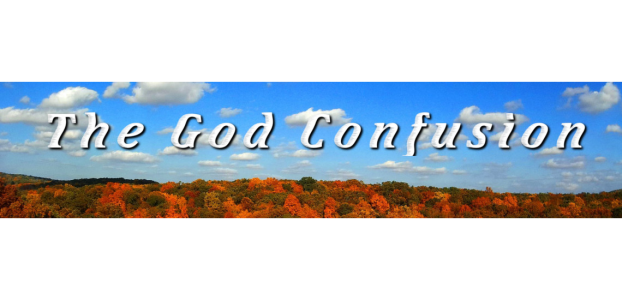Dr. Richard Dawkins opens chapter 7 of his The God Delusion with the unsupported declaration that there are only “two ways in which scripture might be a source of morals.” One is by “direct instruction,” he writes, the other by “example.” Though this approach is widespread, it strikes me as incredibly naive.
In chapter 31 of my The Bible Doesn’t Say That, I draw an analogy to a well-known story about young George Washington who didn’t lie when asked about cutting down his father’s cherry tree.
The original source of that story is the 1800 publication by Parson Mason Locke Weems called The Life of George Washington; With Curious Anecdotes, Equally Honourable to Himself, and Exemplary to His Young Countrymen. In that account, George Washington’s father asks, “Do you know who killed that beautiful little cherry tree yonder in the garden?” George replies, “I can’t tell a lie, Pa; you know I can’t tell a lie. I did cut it with my hatchet.”
From the title of the book (“…Exemplary to His Young Countrymen”) we know that this is a book of stories with morals; we also know that George here is “honourable.”
But that obviously doesn’t mean that the moral of this story is to cut down cherry trees with a hatchet, the way George Washington did. Nor does it mean that we should destroy that which is most valuable to our fathers, the way George Washington did. And it doesn’t mean that cutting down trees or destroying property is honorable, in spite of the title of the book. Those are obviously absurd ways to read the story.
Rather, the moral is to tell the truth, that is, to be like George Washington in some ways but not in other ways.
This method of reading is, in fact, so obvious to most people that it literally goes without saying, just as most people would openly mock someone who used this story about George Washington to prove that we should chop down cherry trees. Yet intelligent people nonetheless insist that the only way to read the Bible is as a book that promotes all of the behavior it contains.
Why is the Bible judged, and then rejected, by methods that are so superficial that we would reject them in any other context?
And it’s not just Dawkins who does this.
In his widely viewed Vanity Fair video on the Ten Commandments, Christopher Hitchens makes the same mistake around 2:45 when he contrasts “Thou shalt not kill” (which is actually a mistranslation) with Moses’s actions thereafter, when, Hitchens says, Moses ordered all his supporters to draw their swords and kill their friends and brothers. Hitchens’s narrow implication is that the subsequent killing is inconsistent with the commandment, and his broader point is that the Bible is so massively inconsistent that it is without value.
Hitchens’s mistake here is to assume that the Bible is meant only as a simplistic “do this” message in which we are to mimic every character. We might equally observe that Moses ends up getting punished (though whether for this or for something else isn’t clear). More generally, we note that direct mimicry is only one way a story might convey a moral.
Again, why is the Bible alone judged and condemned by such shallow standards?

Just an interjection…. That story isn’t true. George Washington did not chop down a cherry tree and say “I cannot tell a lie”…. myth. Just as the children tormenting the “prophet” shouting at him something about “baldy-top” and the prophet prayed to god about the terrible children making fun of his baldness and god sent a she-bear that came out of the woods and tore the children to shreds. That has to be myth as well.
LikeLike